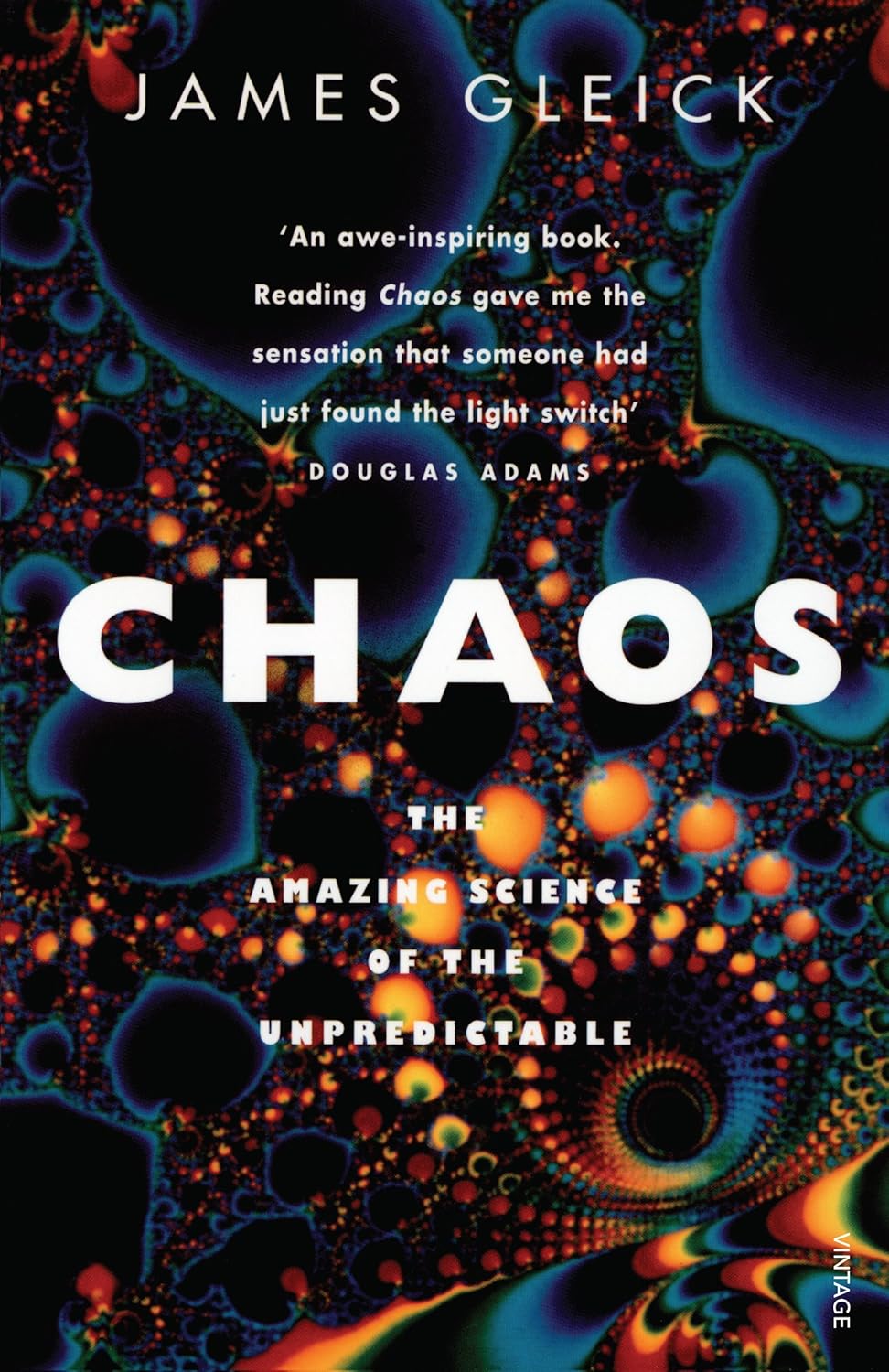Chaos
- Brand: Unbranded

Description
I am a bit biased in that I find this topic fascinating but ignoring that this book is very accessible, you don’t need to be qualified in maths to enjoy it! Chaos: Making a New Science is a debut non-fiction book by James Gleick that initially introduced the principles and early development of the chaos theory to the public. Gleick makes heroes out of Mandelbrot Benoît and the others and weaves an otherworldly charm around their ideas. But there are always chances that changes in initial condition might accumulate into something different. Personally I wasn't overly enamoured with the first half of this book - with the possible exception of the piece on Mr Mandelbrot himself - it's very much a historic account of who figured what out rather than shedding light on chaos theory itself.
Every scientist, mathematician, philosopher, and person who cares about truth and reality needs to read this book and shift their thinking. Admittedly it was rich in stories of key figures and their personalities, but lacking in a clear and concise explanation of chaos.A mathematician turned meteorologist, Edward Lorenz, builds a "toy weather" on what's still a fairly early computer in the early 1960s, and in working with the parameters, concludes that long-term weather forecasting is doomed--a simple deterministic system is producing unpredictable results. At the same time, it was received with suspicion, after all it lacked a solid link with the natural world, and some thought of it as some kind of geometrical shapes obtained by someone playing with a computer. Those with a background in physics, maths, astronomy or anything along those lines will probably feel they can appreciate some fairly significant concepts in the book.
James Gleick was born in New York and began his career in journalism, working as an editor and reporter for the New York Times. We don’t share your credit card details with third-party sellers, and we don’t sell your information to others.The content consists of a few badly written half-biographies, a few pretty pictures and vignettes of science, and no worthwhile mathematics whatsoever. In Chaos, Gleick makes the story of chaos theory not only fascinating but also accessible to beginners, and opens our eyes to a surprising new view of the universe. His narrative is compelling, yes, the stories are interesting, sure, but he doesn't grab the central characters as well as a new journalist like John McPhee does.
Uncover one of the most exciting frontiers of modern physics in this fascinating, insightful and accessible overview of Chaos theory. This is a book that is more about translating the story of the science (not the science) for NOT the layman, but really the lazy layman. The book covers chaos theory under the lens of four themes: sensitive dependence on initial conditions, self-similarity, universality, and nonlinearity. From time to time, on rare occasions, I would form a binary event tree of life and would try to figure out the initial events that accumulated into current condition of life.Various concepts such as the butterfly effect, universal constants, and strange attractors are discussed at a length in the book. The book could have benefited from a lecture style presentation, with clear chapter introductions and summaries, so that I could see how it all fit together, not to mention what year he was currently talking about. Numerous theories of Mitchell J Feigenbaum and D'arcy Thompson are discussed in an elaborate manner, while also taking into account their historical background. To be honest I'd say it's not for the faint-hearted but if you're "into" this kind of thing then you'll most likely enjoy "Chaos".
Robert Sapolsky said, "Chaos is the first book since Baby Beluga where I've gotten to the last page and immediately started reading it over again from the front: I've found this to be the most influential book in my thinking about science since college. This book gives a wonderful explanation of the Butterfly Effect - one of those ideas in science that everyone thinks they know and understands, but that generally people have upside down and back to front. And this ultimately was the real achievement of Gleick in writing Chaos - He manages to convey to us that this is the first foray of science into the realm of art - not just of explaining art but of being art.For me, the real impact is that it has changed the way I look at the ordinary everyday world - the leaves, the trees, the pebbles, the pattern on the peels of an orange - everything is strangely magnified and beautiful now. Actually, really we never know, how many alternate lives we are living every time we have been able to cross one of the busy roads successfully ! Born in New York City, USA, Gleick attended Harvard College, graduating in 1976 with a degree in English and linguistics. The most interesting chapters were the final two, about the possible application to physiology and then a summary of the concept.
- Fruugo ID: 258392218-563234582
- EAN: 764486781913
-
Sold by: Fruugo
